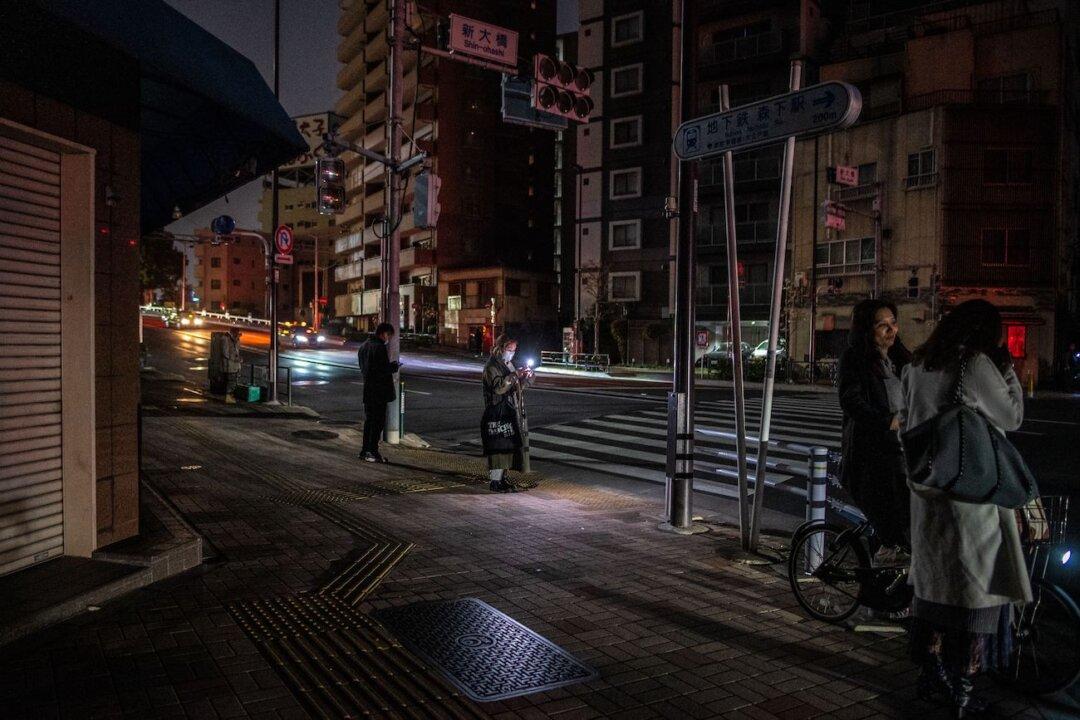Japan’s government on Tuesday urged citizens and businesses to conserve electricity, warning that the capital of Tokyo could face blackouts as a result of the cold weather and power plant outages caused by last week’s earthquake.
Snow fell in Tokyo on Tuesday, with temperatures forecast to peak at just 4 degrees Celsius (39.2 degrees Fahrenheit), compared with a high of 14 degrees on Monday.





